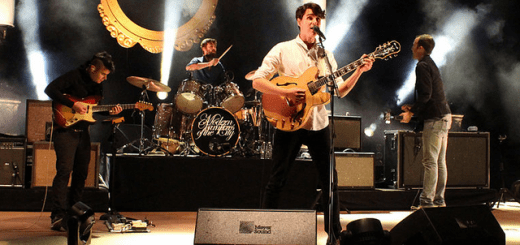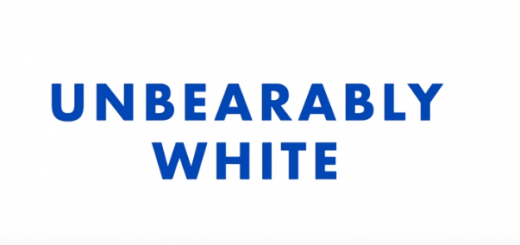Diplomat’s Son by Vampire Weekend Lyrics Meaning – Unraveling the Threads of Nostalgia and Identity
Lyrics
And if I wait, could I ever forgive myself?
On a night when the moon glows yellow in the riptide
With the light from the TV’s buzzing in the house
‘Cause I’m gonna cut it where I can
And then I’m gonna duck out behind them
If I ever had a chance it’s now then
But I never had the feeling I could offer that to you
To offer it to you would be cruel
When all I want to do is use, use you
He was a diplomat’s son, it was ’81
He was a diplomat’s son, it was ’81, oh-oh, oh-oh
Dressed in white with my car keys hidden in the kitchen
I could sleep wherever I lay my head
And the sight of your two shoes sitting in the bathtub
Let me know that I shouldn’t give up just yet
‘Cause I’m gonna take it from Simon
And then I’m gonna duck out behind them
If I ever had a chance it’s now then
But I never had the feeling I could offer that to you
To offer it to you would be cruel
When all I want to do is use, use you
He was a diplomat’s son, it was ’81
He was a diplomat’s son, it was ’81, oh-oh, oh-oh
I know, you’ll say I’m not doing it right
But this is how I want it
I can’t go back to how I felt before, there’s
That night I smoked a joint with my best friend
We found ourselves in bed, when I woke up, he was gone
He was a diplomat’s son, it was ’81
He was a diplomat’s son, it was ’81
Looking out at the ice-cold water all around me
I can’t feel any traces of that other place
In the dark, when the wind comes racing off the river
There’s a car all black with diplomatic plates
Within the intricate melodies and upbeat rhythms often characteristic of Vampire Weekend’s eclectic sound, lies a song that encapsulates the pangs of nostalgia, the aches of identity, and the yearning for connection. ‘Diplomat’s Son,’ a track from their 2010 sophomore album ‘Contra,’ simmers with the sentimental longing of a time now passed and ventures into the depths of an intimate narrative entwined with cultural references and personal introspection.
As with much of Vampire Weekend’s work, the allure of ‘Diplomat’s Son’ is as much in its storytelling as it is in its sound. With its evocative lyrics that traverse through time, emotion, and memory, the song invites listeners to peel back the layers of a complex tale that speaks volumes about love, regret, and the nuanced experience of grappling with one’s own truth.
The Enigmatic Tale of Love and Regret
At the heart of ‘Diplomat’s Son’ lies a twisted love story, one that’s steeped in hesitation and colored by the hues of retrospect. The protagonist’s internal struggle with expressing their true feelings resonates through the verses. ‘It’s not right, but it’s now or never,’ sings Ezra Koenig, the band’s frontman, capturing a sense of urgent indecision that is both universal and personal.
The recurring motif of ‘if I wait, could I ever forgive myself?’ echoes the timeless theme of missed opportunities. In connection to love, the song delves into the fear of expressing vulnerability and the self-doubt that can plague the human experience when potential romance is at stake.
A Snapshot of the ’80s: More Than Just a Time Stamp
‘He was a diplomat’s son, it was ’81,’ the chorus sings out, grounding the song in a specific moment in time. But the lyrics do more than just establish a temporal context; they paint a vivid picture of the socio-political scenery and the youth’s place within it during the early ’80s. The mentioning of a diplomat’s son hints at a world of privilege, international intrigue, and perhaps a sheltered existence juxtaposed against the narrator’s own.
This reference illuminates themes of power dynamics and cultural influence, while also alluding to a character who is at once insider and outsider, shaped by his circumstances but possibly confined by them as well – a premise that aligns with the broader motifs of youthful rebellion and the search for self in Vampire Weekend’s discography.
Cryptic Trappings: The Hidden Meaning Within
Emerging beneath the layer of an apparent love lament, ‘Diplomat’s Son’ might be read as a metaphor for identity and the struggle for authenticity. The act of ‘ducking out’ suggests a desire to escape, perhaps from expectations or societal norms. It is in these moments of the song where the narrative seems less about a specific other and more about the diplomat’s son’s internal battle.
The fragmented images – car keys hidden in the kitchen, shoes in the bathtub, black cars with diplomatic plates – serve as a mosaic of memories, each piece adding to a portrayal of the diplomat’s son’s own journey towards self-realization amid external pressures.
Lines That Linger: The Lyrical Hooks That Haunt Us
‘I can’t go back to how I felt before.’ This simple yet poignant admission stands out among the song’s narrative twists and turns. It’s a declaration of change and recognition of an irreversible transformation. The song’s protagonist understands that the past has imbued him with a new perspective, one from which there is no return to former naivety or simplicity.
Such lines exemplify Vampire Weekend’s talent for creating memorable phrases that carry the weight of profound truths, resonating with listeners long after the last note is played. Their lyrical prowess turns seemingly straightforward tales into anthems of the human condition.
Navigating the Ice-Cold Waters of Existential Reflection
As ‘Diplomat’s Son’ draws to a close, the imagery of the surrounding ice-cold water invokes a sense of isolation and existential contemplation. The protagonist is left devoid of ‘any traces of that other place,’ illustrating a dissociation from the past, or perhaps from a former self.
It is in these final moments that the song cements its place as a vessel for deeper reflection — reminding us that our narratives are often non-linear, filled with complex emotions and different personas, much like the diplomat’s son himself. In the shroud of the song’s critical ending, we find a moment of awakening where the past is acknowledged, yet the present and future emerge as the true focus.








